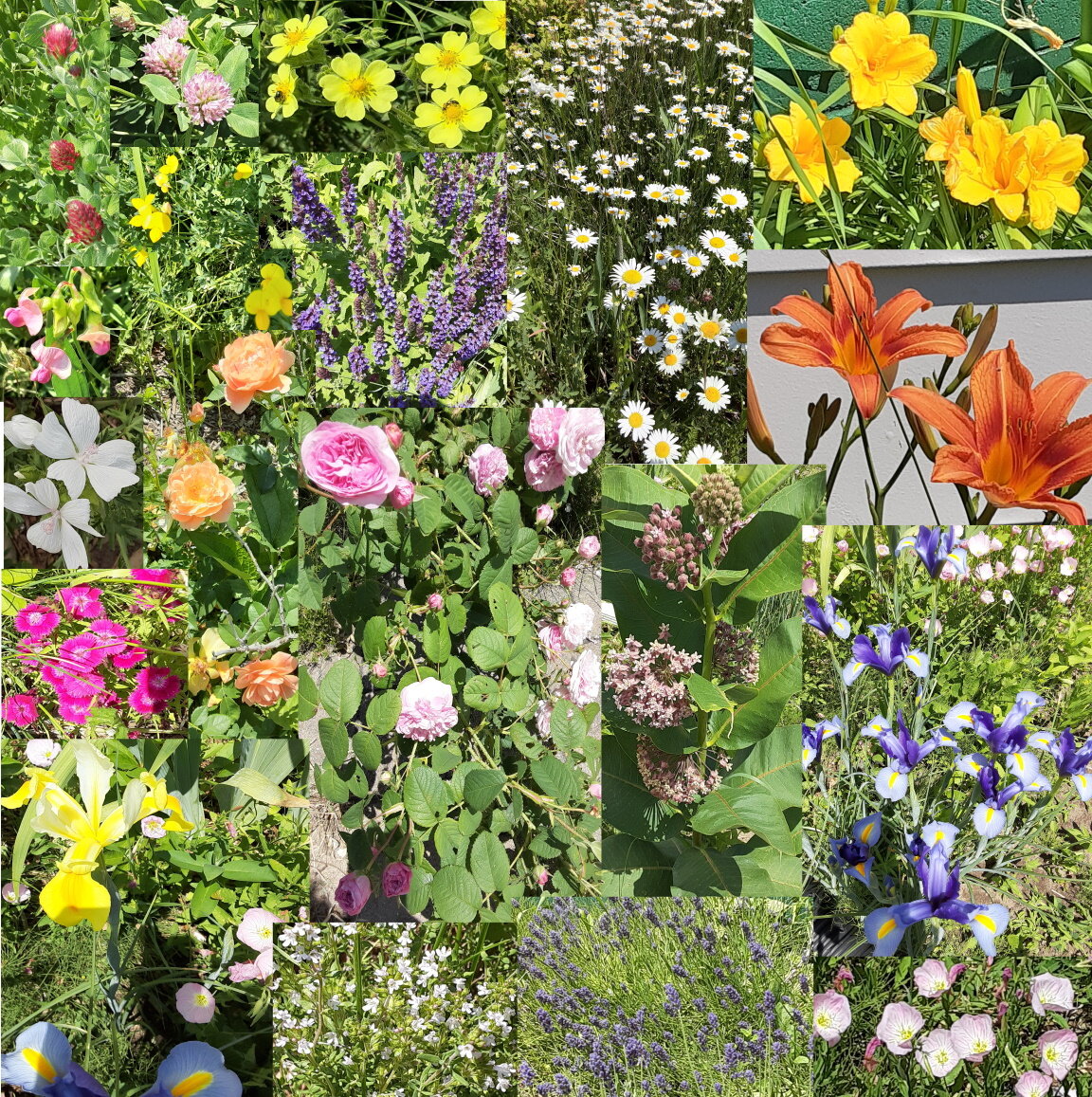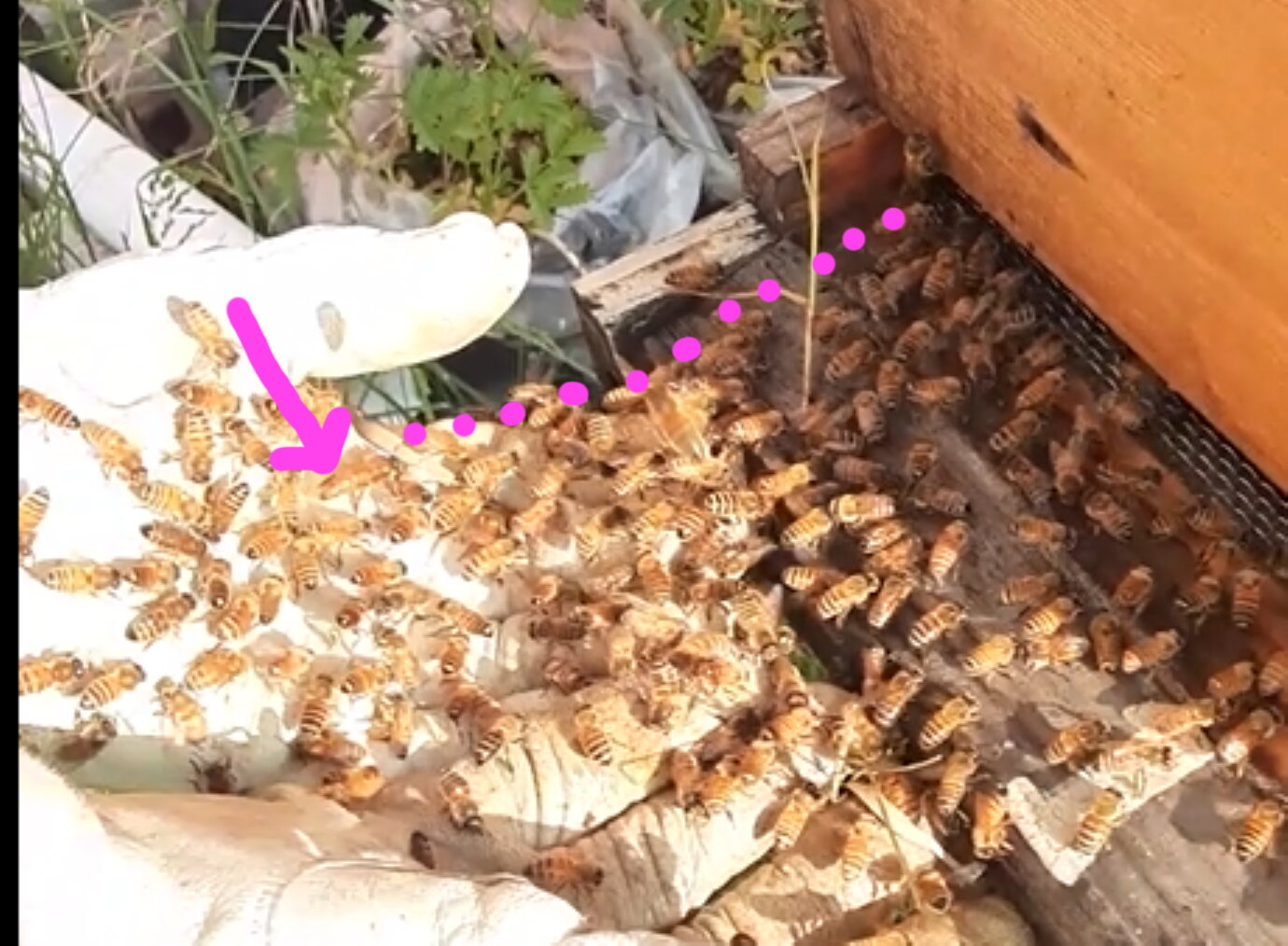
Our Story
Bees and insects are such an important part of our food chain. Without the pollinators we wouldn’t have much to eat. After reading about the decline of the honey bees due to wide range use of pesticides we decided to help out and set up 2 hives in 2017.
The sun shining through a frame during an inspection
In 2018 we expanded to 4 hives. We have dozens of apple and fruit trees, wildflowers, clover, dandelions and many other perennials and annual flowers. Each year we plant more pollinator forage and continue to expand gardens and flower beds. Our lawn is full of dandelions, clover, wild strawberries, hawk weed and other “weeds”.
Our Apiary has only expanded from there. 2020 was a crazy swarm season. We were up to 17 hives with all of the splits and swarms caught. Our current Apiary goal is to grow with Michigan survivor bees and superior genetics.
We are a member of the Michigan Beekeepers Association and under the guidance of the experts at MSU we intend to have the healthiest bees possible and provide other area beekeepers in the future with local bees and queens.
One of the many 2020 swarms and the Queen marching in to their new home.
We have always had our own garden and follow natural gardening practices. In 2019 we had a high tunnel put up so we could extend the growing season. Our goal for food production is to provide our community with high quality chemical free nutritious vegetables. We are USDA Environmentally verified.
MAEAP verified in the fall of 2019
This means we have gone through a rigorous review by the Michigan Department of Agriculture and Rural Development. MAEAP verified farms keep our land, water and air as healthy as the food we produce, we represent the highest standards of environmental stewardship and the pinnacle of responsible agriculture.
We use natural pest control which include Native Ladybugs and praying mantises. We have a healthy population of frogs, toads and garter snakes. All of these help keep our plant eating insects under control using no chemicals.
We are pleased to offer our community healthy nutritious produce
Our vision is to educate the community and encourage healthy environmental practices and future beekeepers. Bees are so complex and interesting. Check out the Education section for cool microscopic photos and lots of information.
If you would like to support our efforts, please consider making a donation. Every little bit helps towards the purchase of Bee boxes, pollinator and garden seeds and plants, natural pest control, row covers and many many other costs which are never ending. But we are passionate about our bees, insects and nature and will continue to do our part and educate others.






